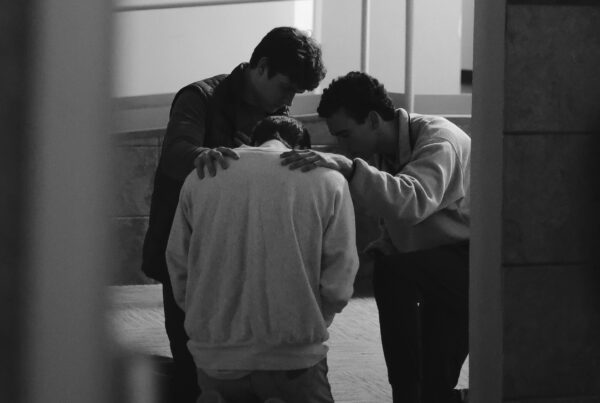Culture is a big deal. Truth is an even bigger one. For several reasons, truth and our cultural context are struggling to be close friends right now. Everything from fake news to cancel culture drives home this reality to those who are seeking to be salt and light. So we feel deeply that we better be careful with what we say and how we say it because only specific types of truth are welcome in this culture.
I spent the last 10 years in an East Texas town called Huntsville, home of Sam Houston State University. In January 2020, my wife and I moved to San Marcos, Texas–home of Texas State University–to plant a church that would love both the city and the campus with the good news of Jesus. To say that the culture is different in San Marcos than in Huntsville is one of the many understatements of the year. While our culture might be different than your town, I wanted to share three cultural concerns I think might apply to most collegiate contexts. I am not a sociologist. Nor am I a counselor or a philosopher. I’m simply a collegiate church planter who is seeking to have his ear close to the heart of our city and campus while also seeking to bring truth and light into darkness.
1 – “Influencers” are having more influence than meaningful relationships
I would imagine that each of us have had a moment where a student has wanted to share the latest “nugget of truth/wisdom” they gleaned from their favorite social media influencer. It doesn’t matter what their credentials are, what their background is, or even what their theological education is. What matters is that the world in which we live has elevated certain people to a place of influence and many of our students are watching, listening, and learning.
You could have been investing in this student for years, but when their favorite blogger or insta-influencer says something that catches their ear, you can guess what is getting shared on their story. I don’t necessarily have answers to this, but two things I am doing are: 1) encouraging our students to spend more and more time in God’s Word; and, 2) seeking to dive into their world to learn more about those who are influencing them, and why.
2 – Only certain sin can be called sin
Depending on your own personal culture and background (see point number three for the irony of that statement), only certain sins can be called sin. If you are African American or identify as “woke,” the murder of George Floyd is rightly called a sin. But if you’re in East Texas, you better be careful calling that a sin. You would be far safer saying that it is a sin to kneel during the national anthem than to start calling out injustice in our “justice system.” While I would certainly hold that the murder of any person, regardless of their race, is a sin against God and man, we live in a day and age where many want to write that off as “fake news” or simply another moment in someone’s political agenda.
The conversation is no longer centered around truth but instead, it is rooted in cultural beliefs and practices. One culture says that gender is fluid, while another says that it isn’t. One culture says a woman has the right to choose whether she keeps a baby or not, while another culture says that the baby has the right to life. These conversations aren’t taking place from any type of biblically-informed theology of sin and brokenness, but are instead rooted in group thought and cultural ideologies. One of the questions I am asking our church is, “Can we really say we are followers of Jesus if we aren’t submitting to his Word rather than our culture?”
3 – Truth is only a personal reality
From statements like “live your truth” to “you do you,” the individual is now the sole decision-maker on what truth really is. There is little space for objective, revealed, truth. There is little room for God’s Word to be wholly true and our primary source of truth and revelation. There is little room for God to be the primary source of what reality looks like and the source of what really is good in our world. All these decisions have now been relegated to the individual, an individual who is being shaped more by social media than the Scriptures and an individual who is being told by dominant cultures what is and isn’t sin. This makes disciple-making a great challenge, to say the least.
What are we to do about it?
I humbly suggest we need to be smarter disciple-makers. We cannot hold on to empty theologies drenched in the latest leadership tips and tricks instead of drenched in a long-held, historically-affirmed doctrine of God. We need our language, teaching, and social media accounts to be peppered with the words of God far more than we need some new influencer’s latest life hack.
- If God has called you to be the primary leader in your ministry, spend lots of time in the next few weeks reading and re-reading the pastoral epistles (1 and 2 Timothy, Titus, and 1 and 2 Peter).
- Be one of the primary examples in their life demonstrating what it looks like to walk with God by spending time being formed by him in his Word, on his terms, with his people.
- Read great books about God that supplement your Bible reading (my most recommended read right now is Delighting in the Trinity by Michael Reeves: https://www.amazon.com/Delighting-Trinity-Introduction-Christian-Faith/dp/0830839836)
- Spend time begging God for the hearts and minds of your students, and let them know you are committing yourself to pray for them on a regular basis.
What about you? What cultural concerns are you seeing in your own context and how are you engaging them?







